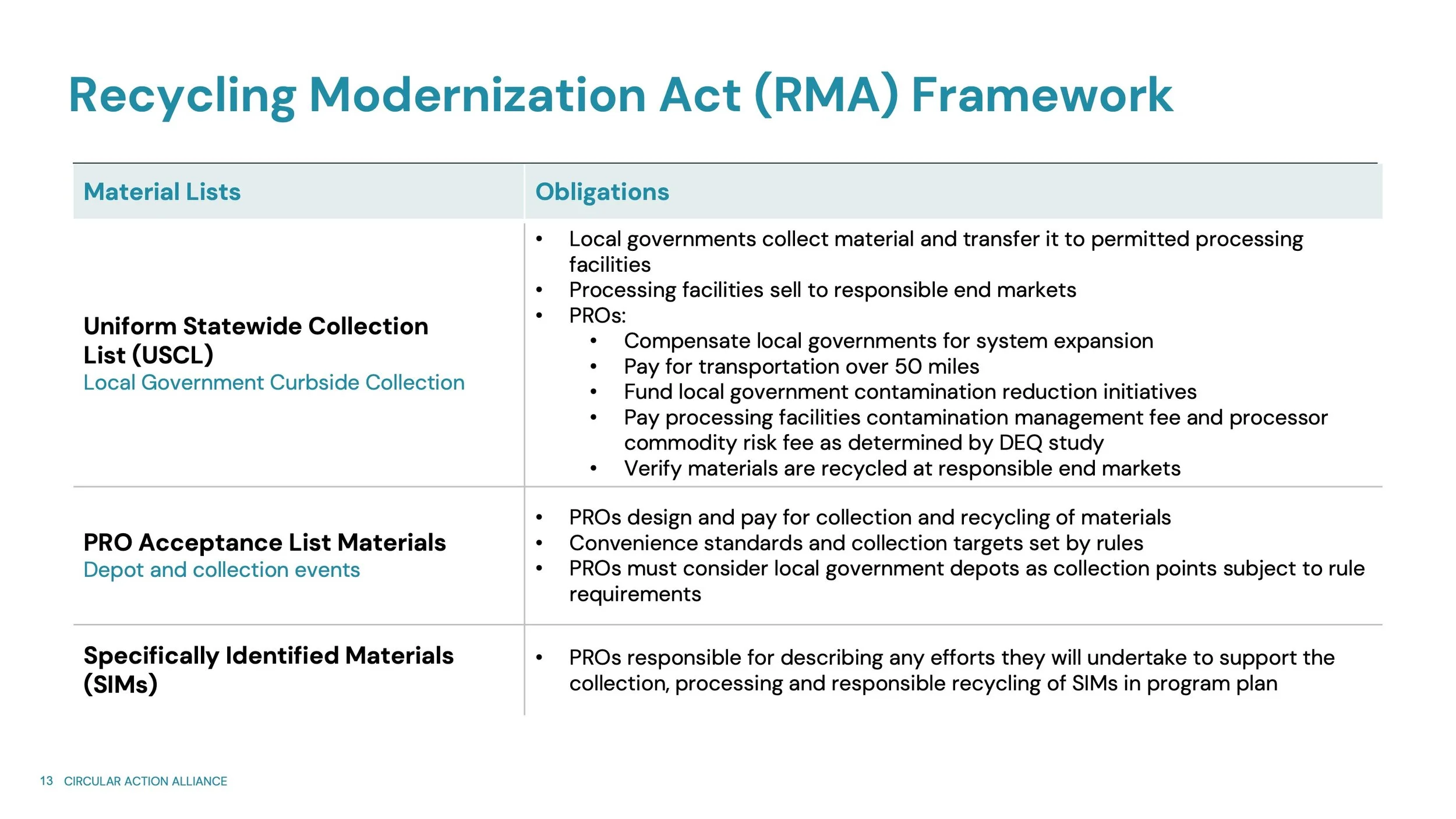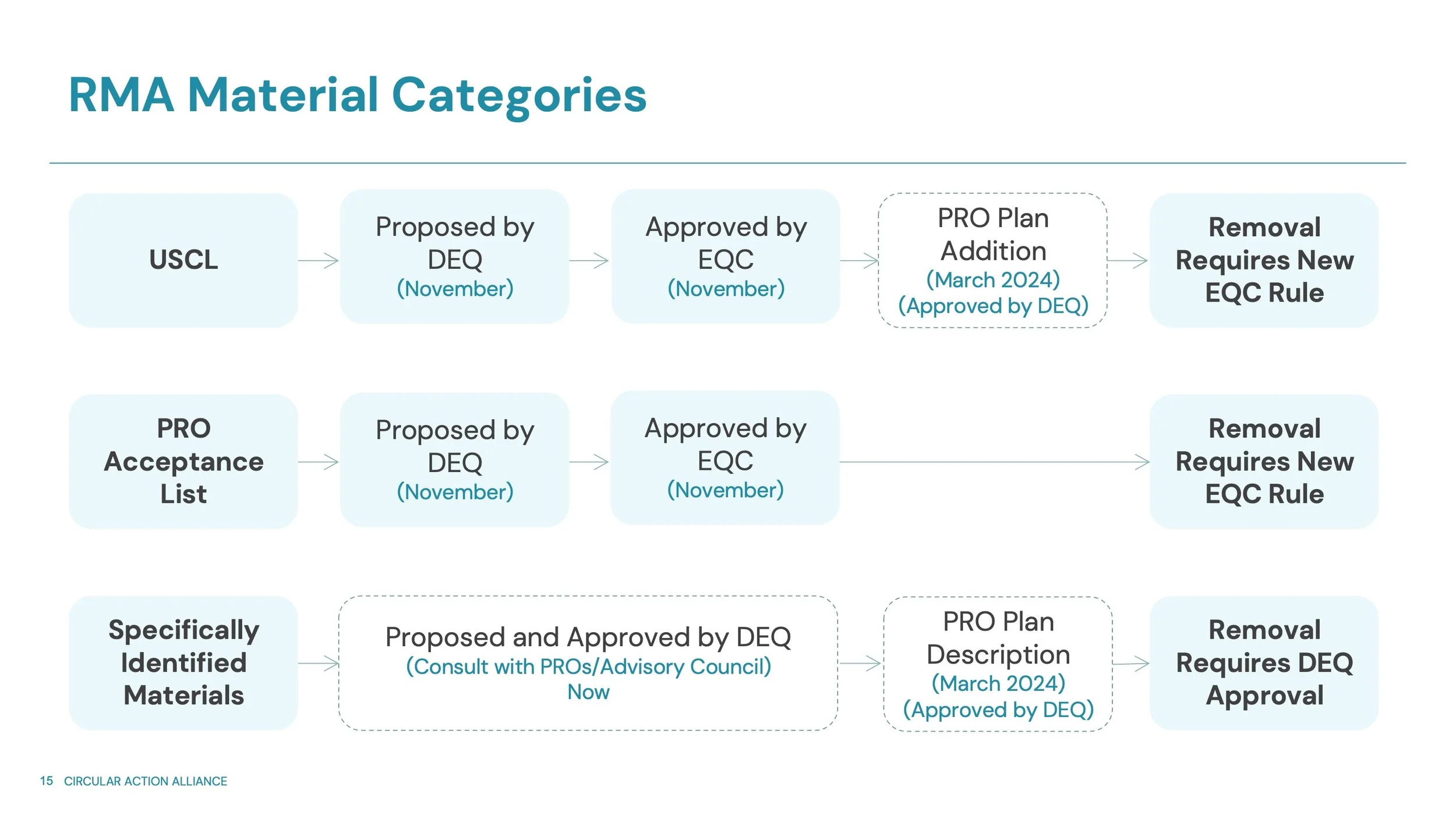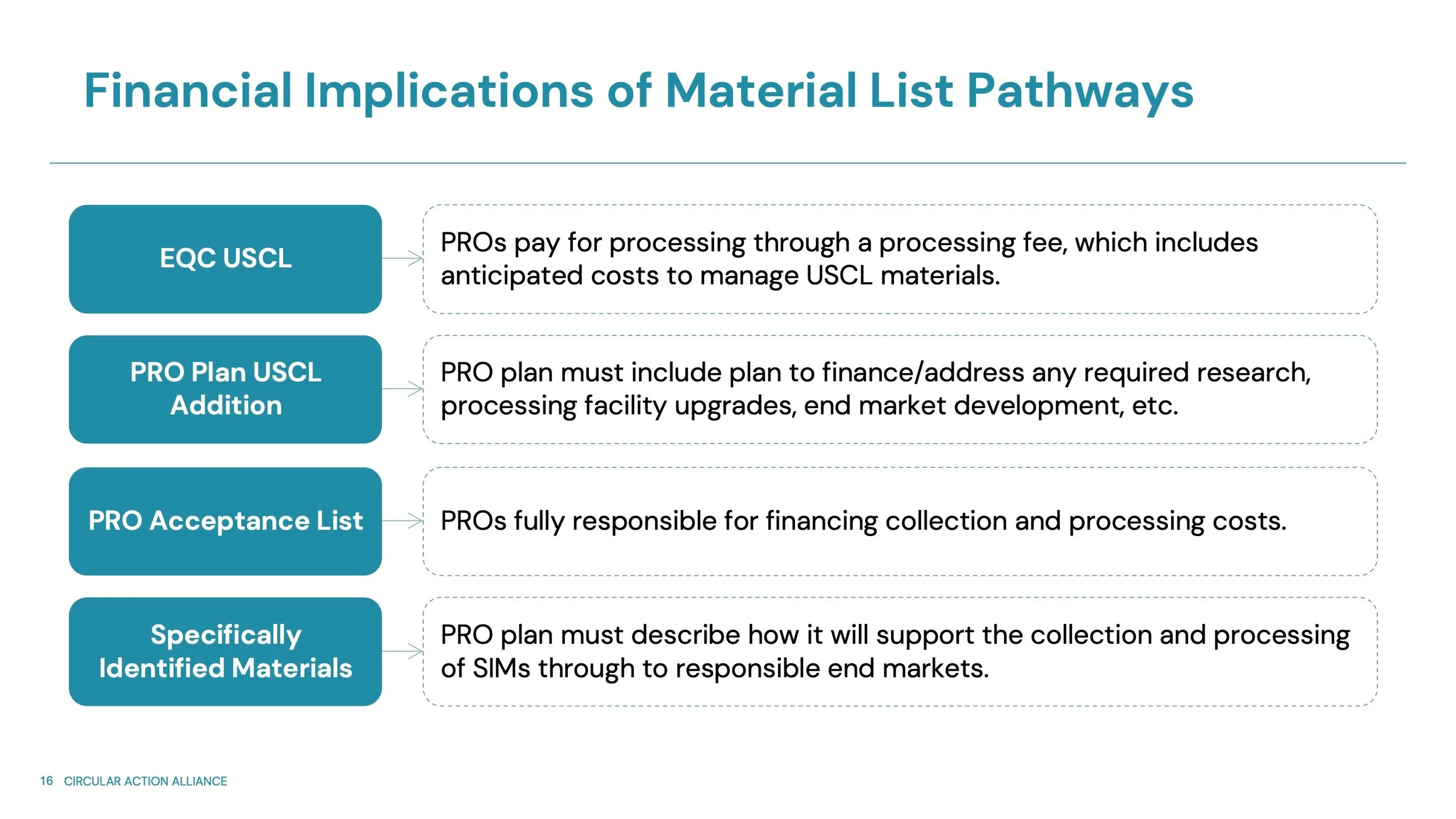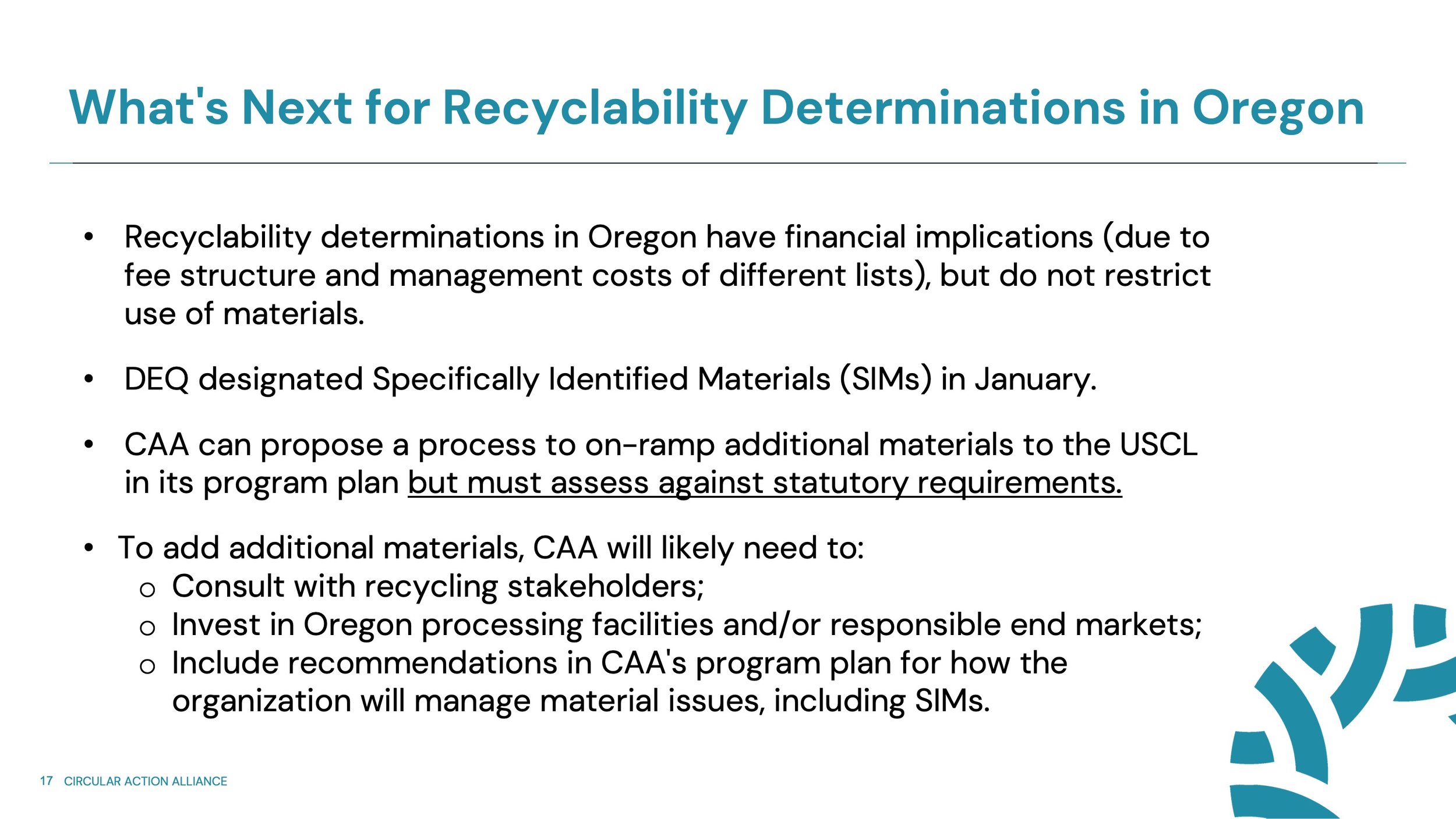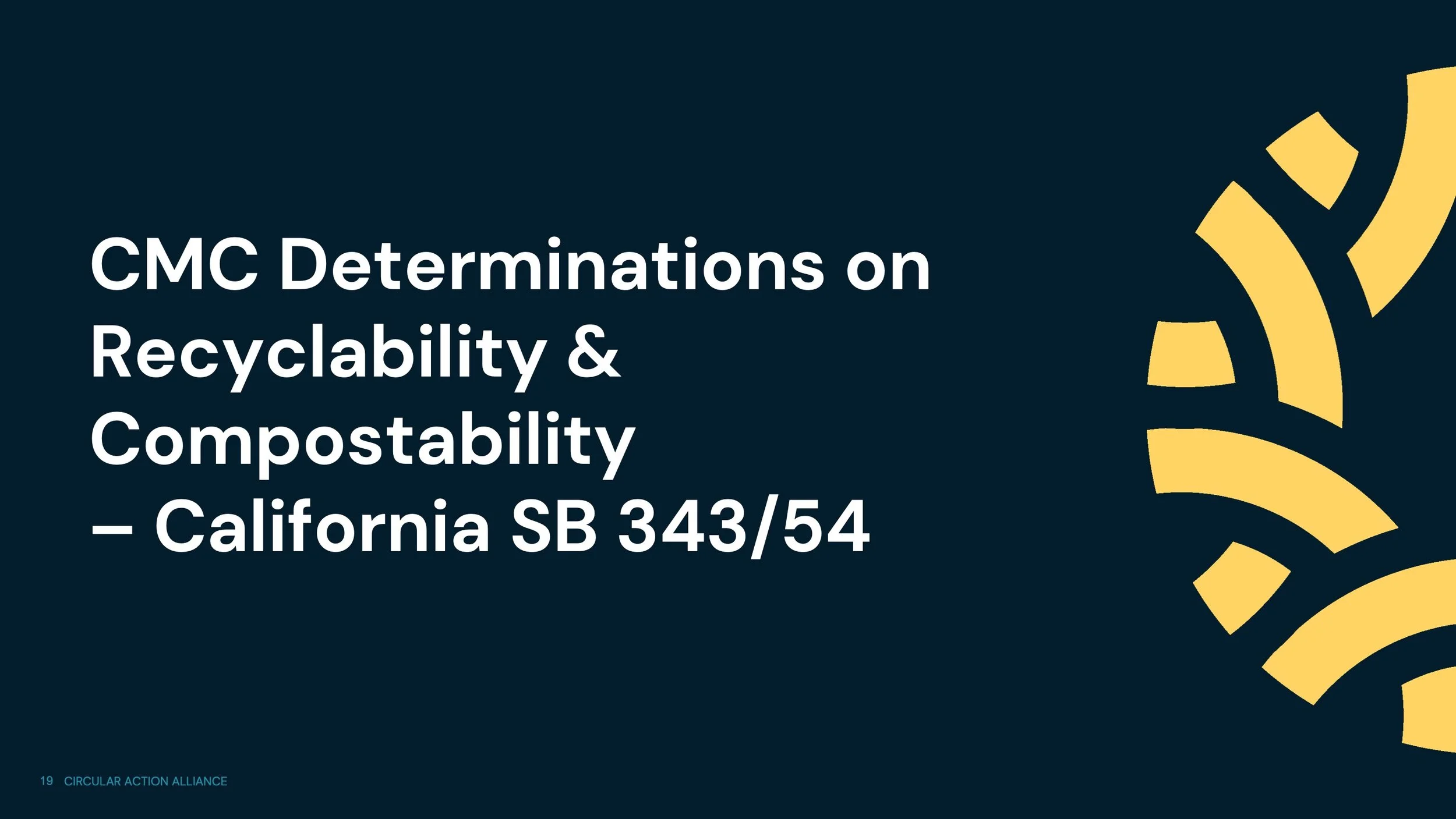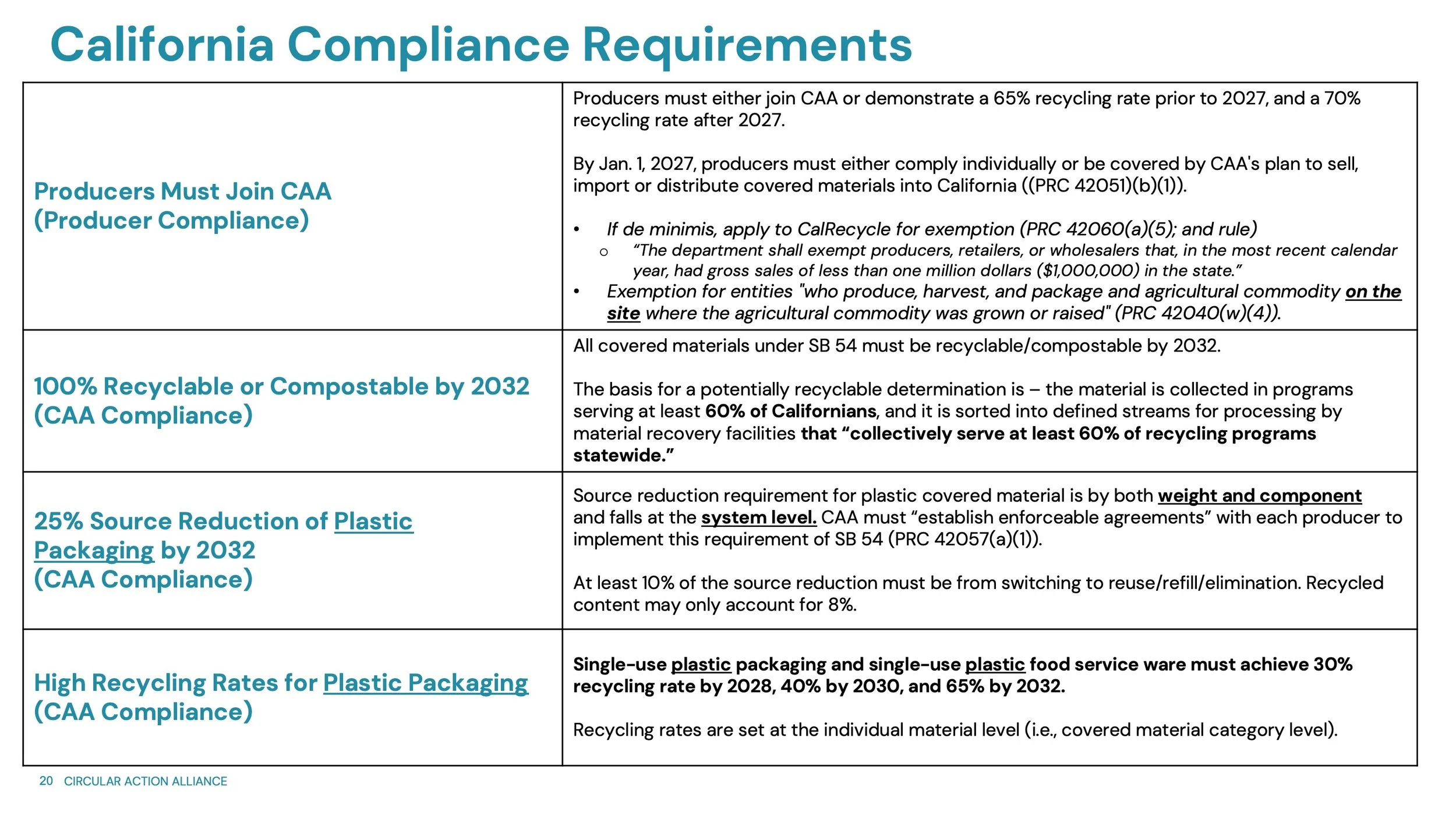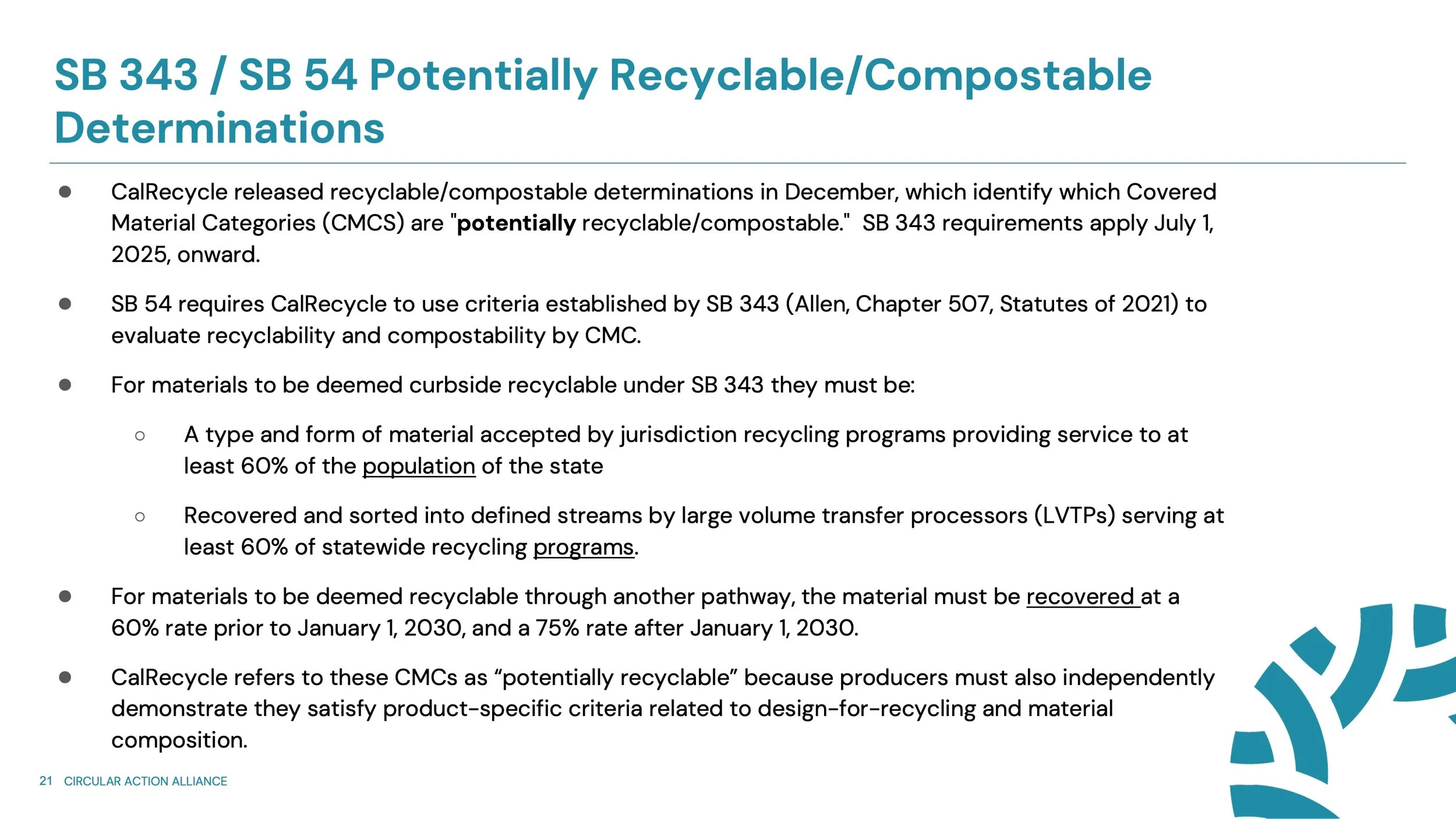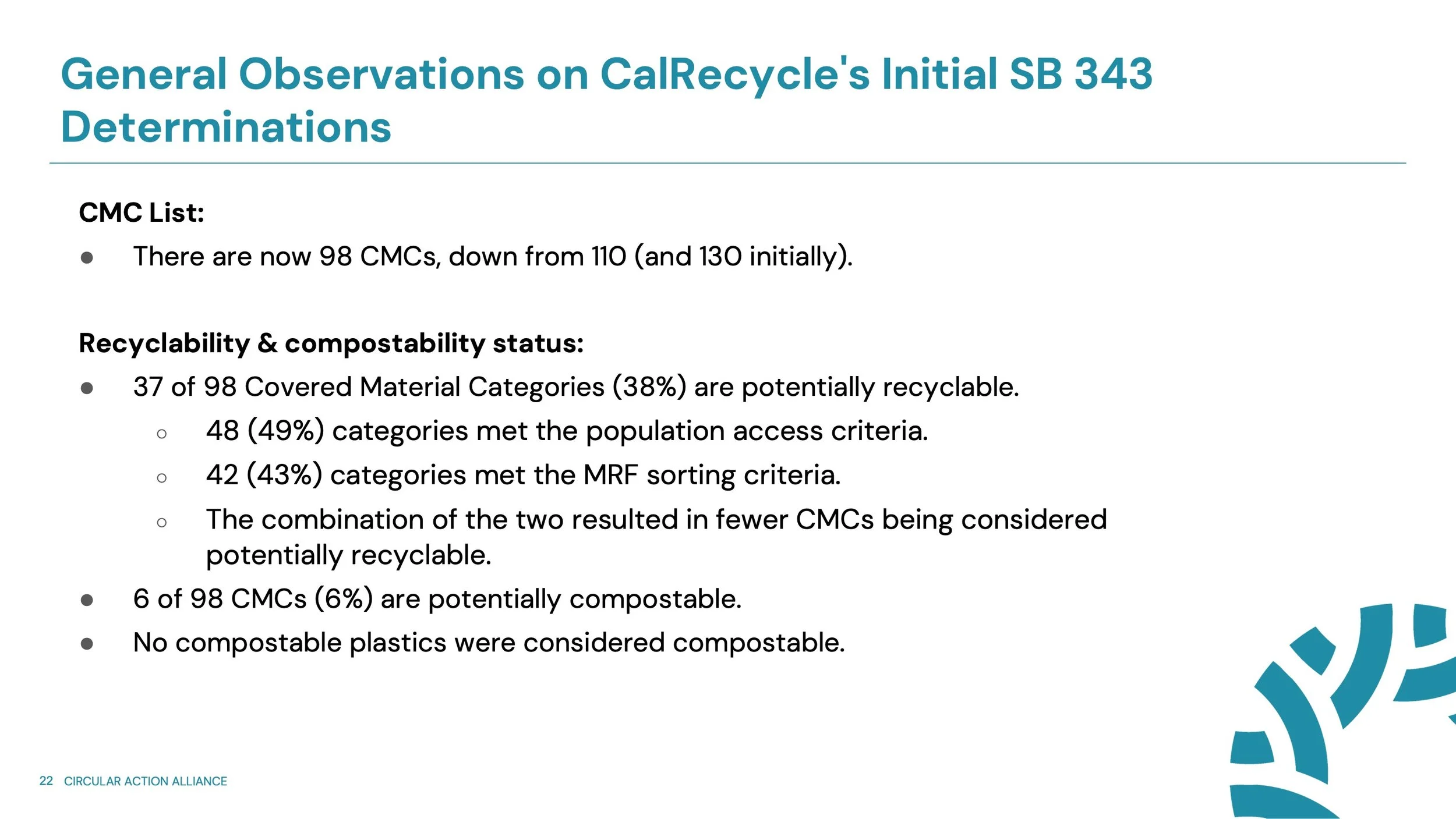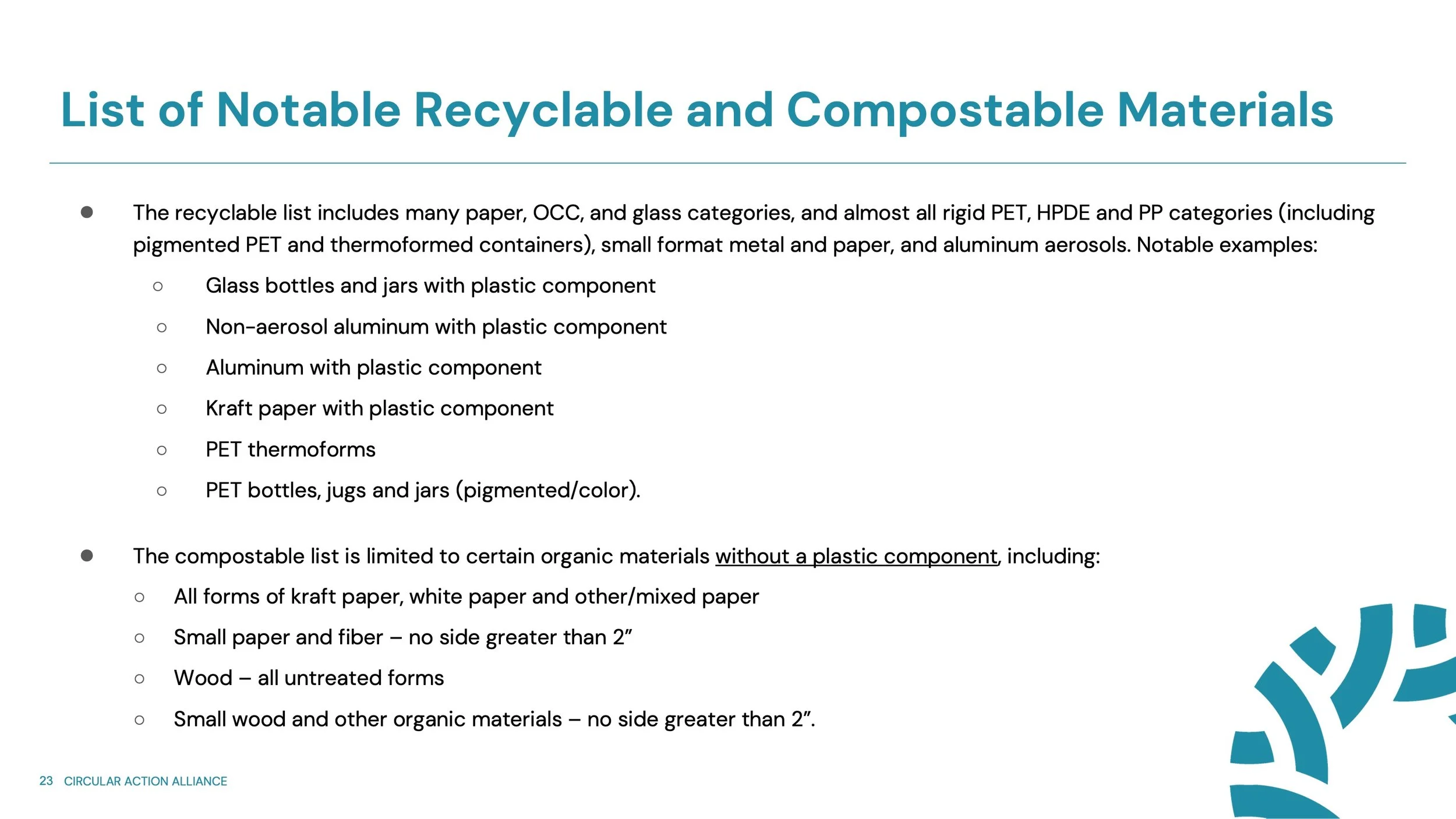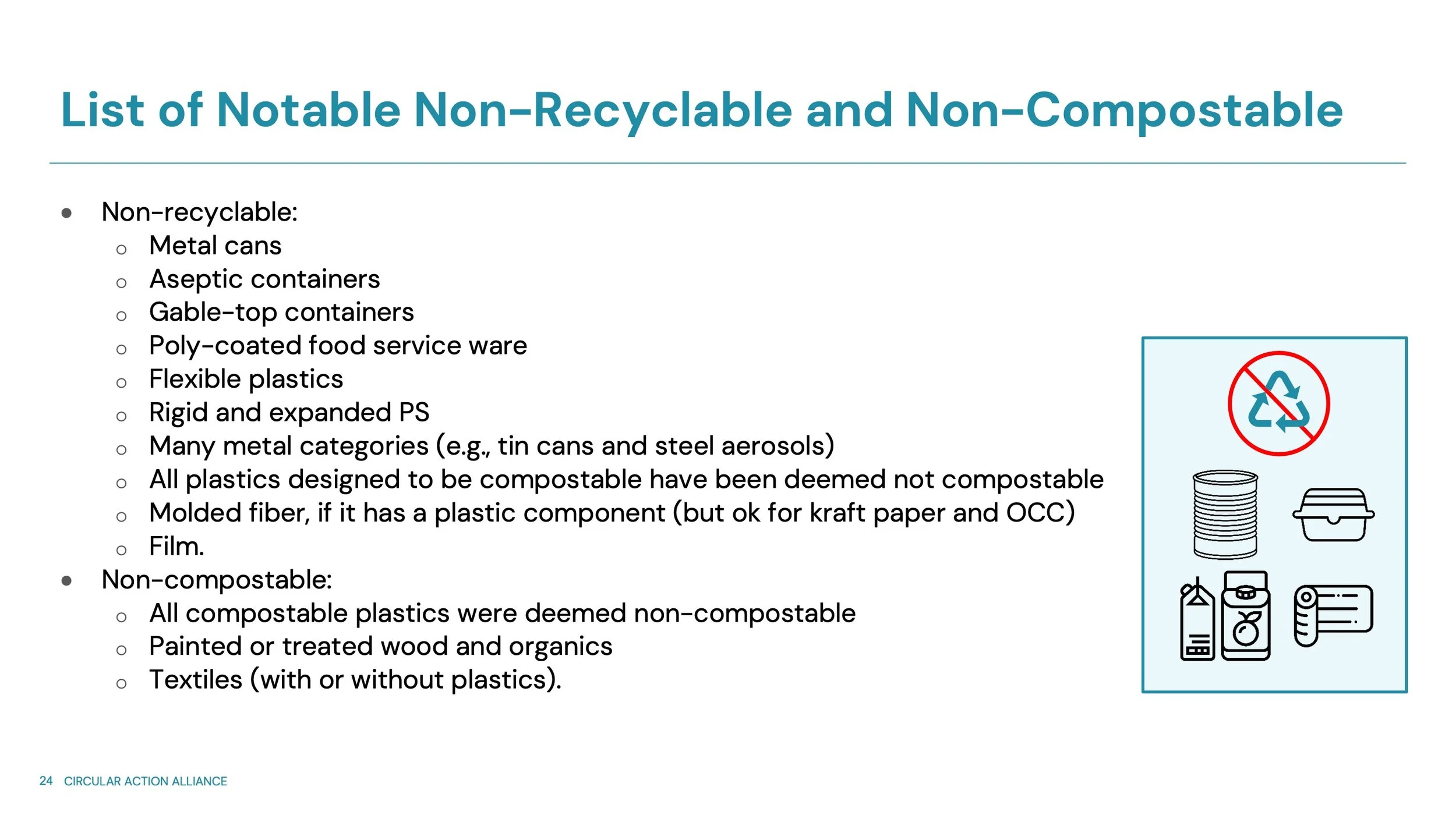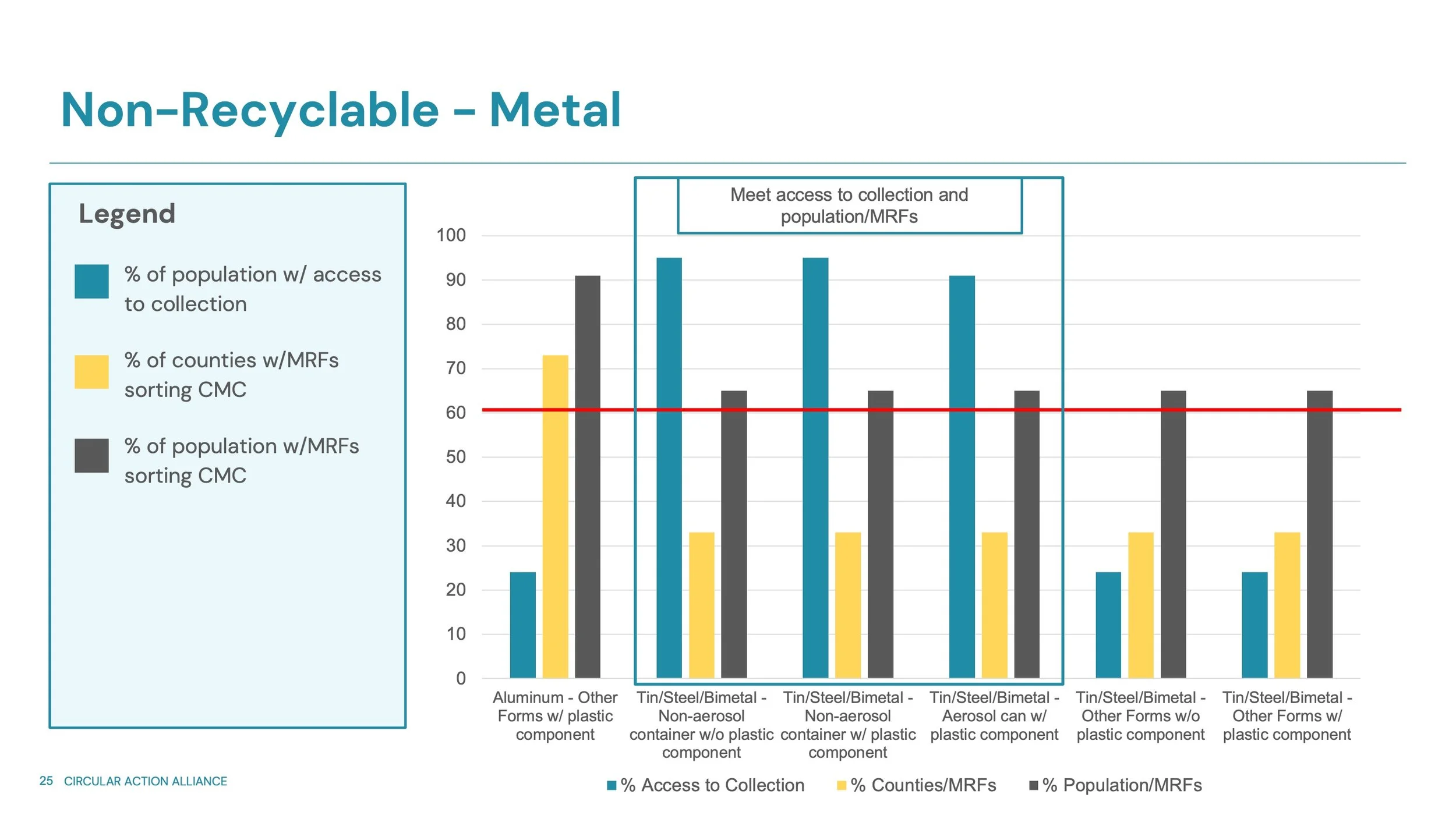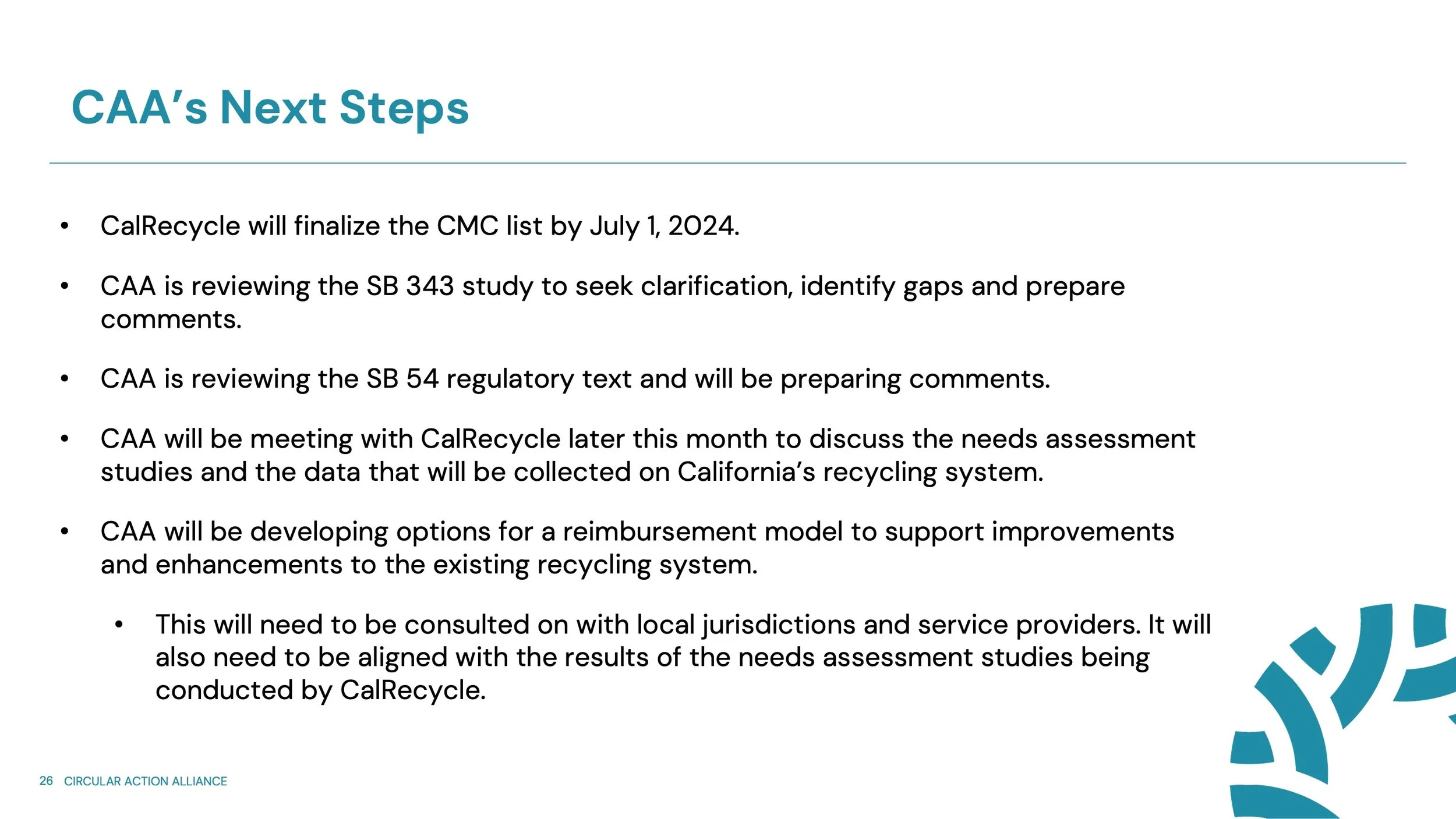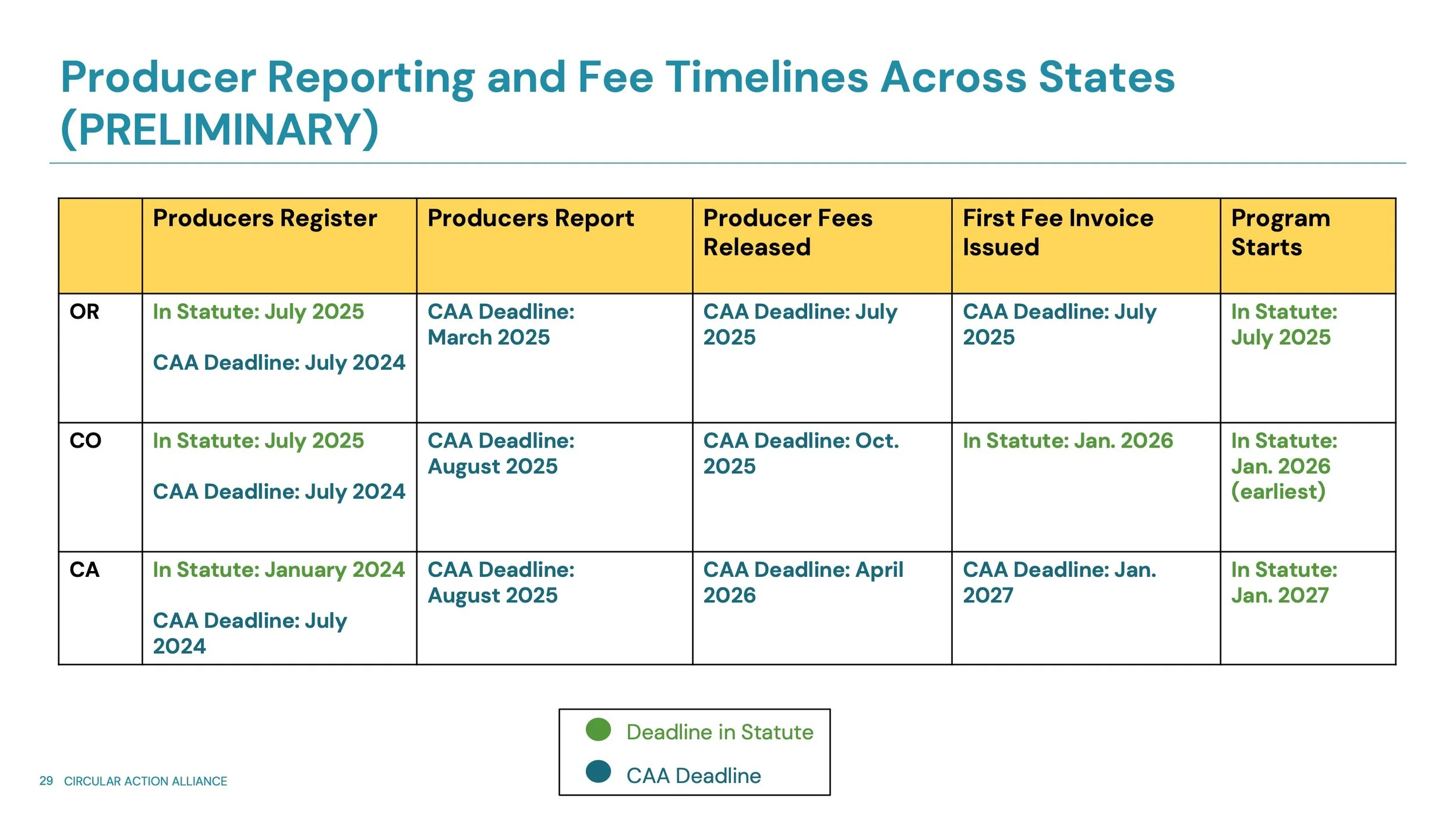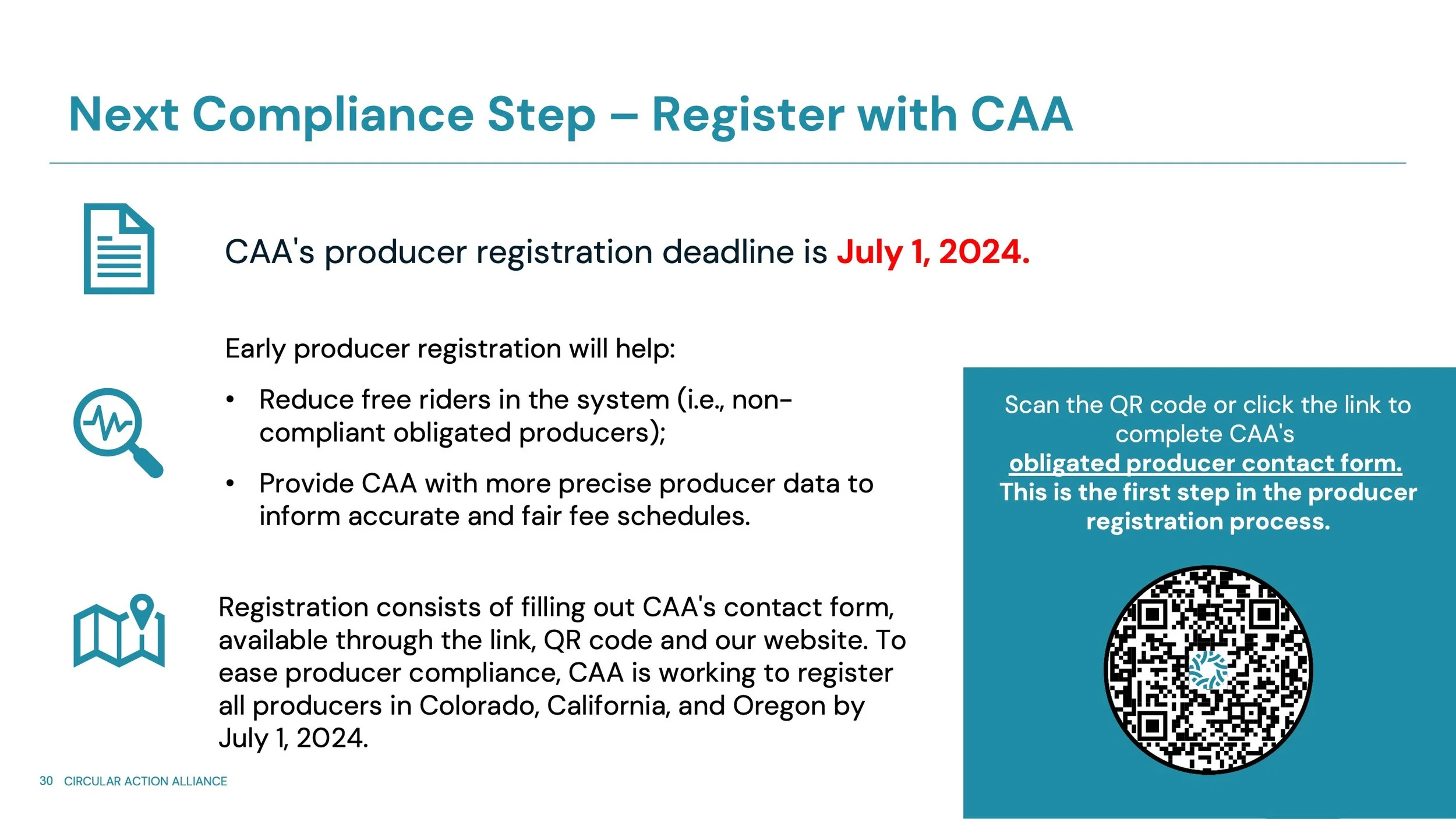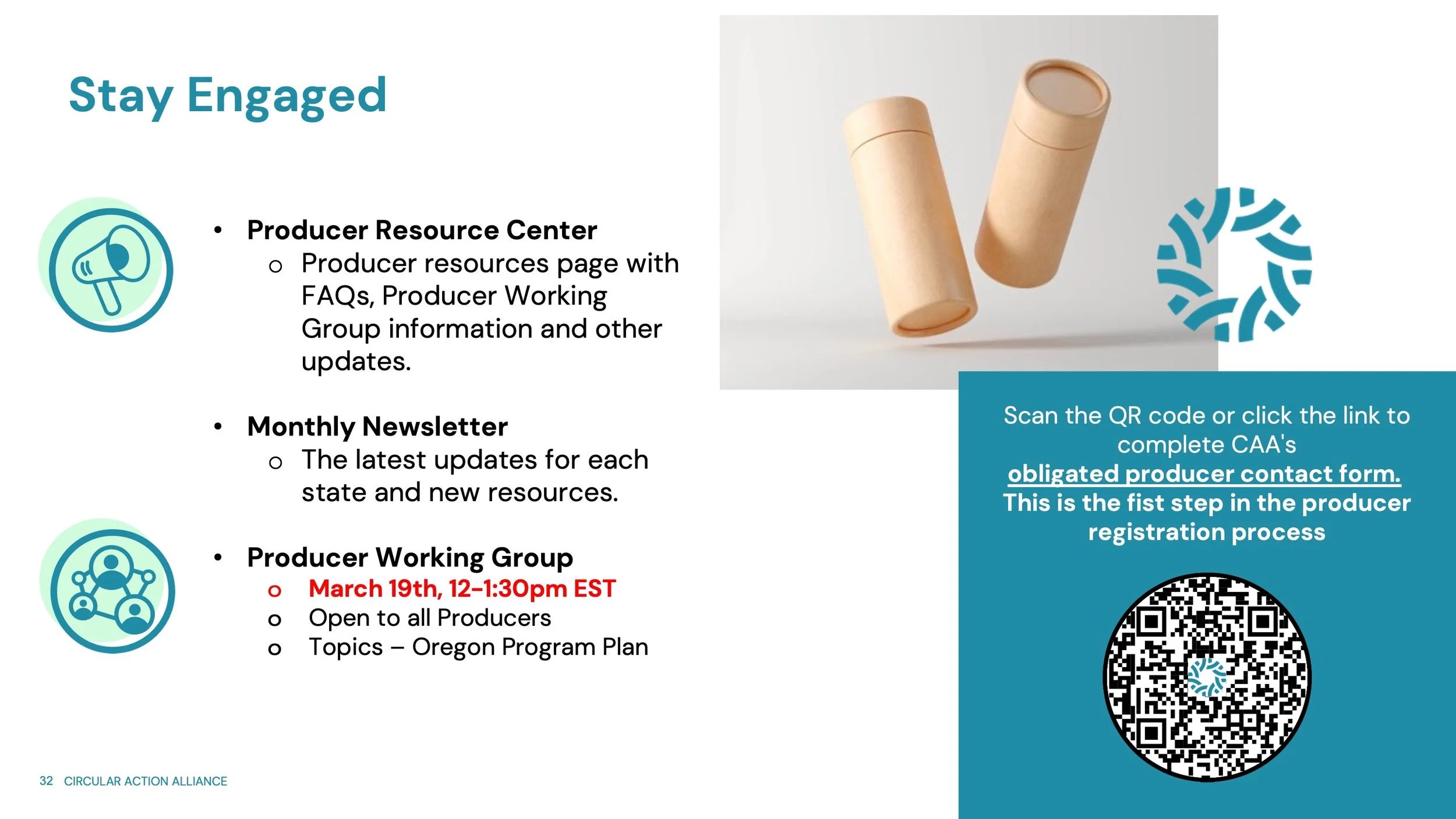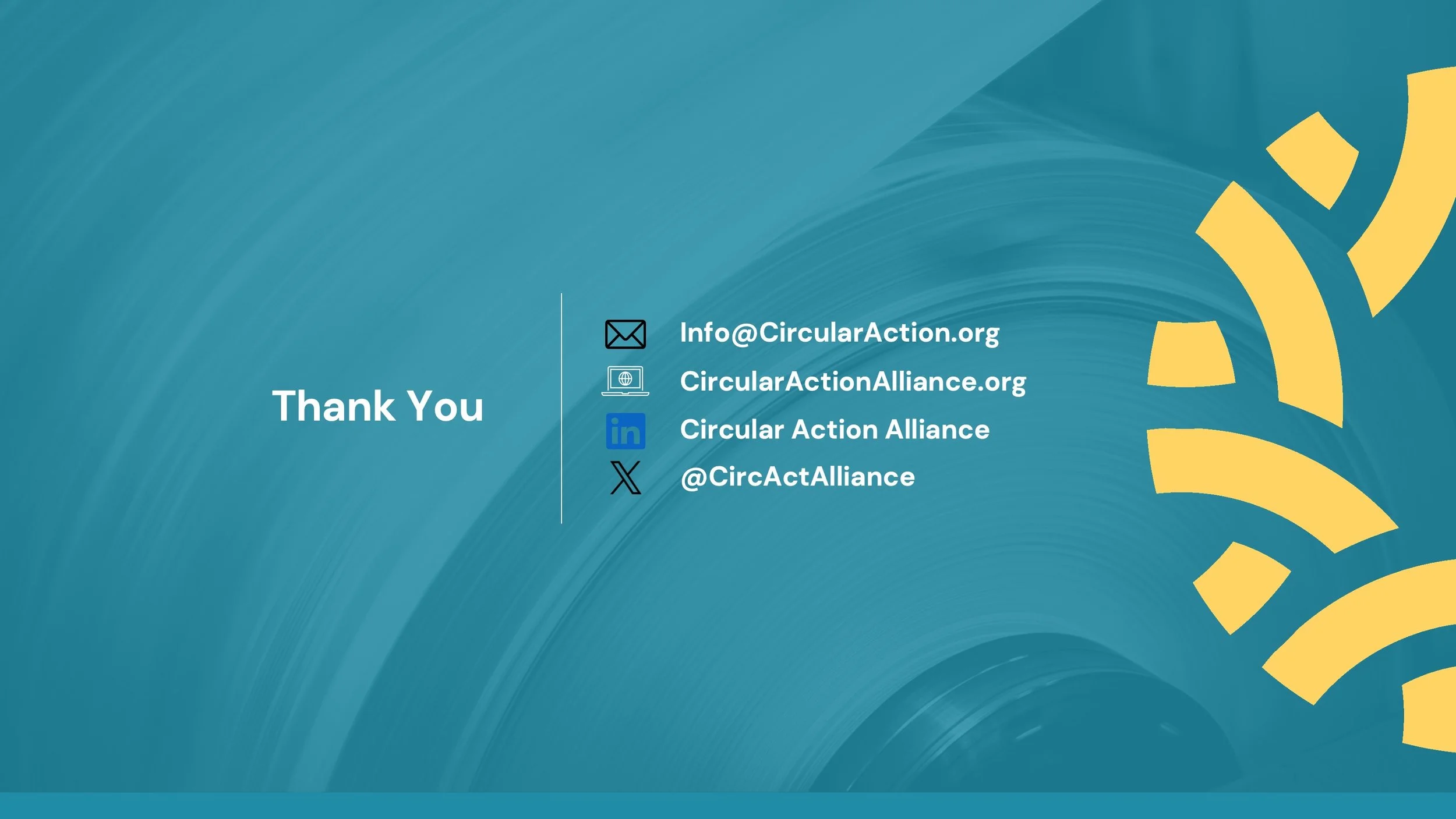Producer Working Group Meeting #4
The Producer Working Group (PWG) is a monthly opportunity for producers, their legal representatives, and trade associations to learn about and discuss priority producer issues. Please do not share this content beyond the group.
February 20, 2024
Presentation
Key Takeaways
Preliminary Registration Deadline. To comply with California, Colorado and Oregon's EPR laws for paper and packaging, producers must register with CAA, unless the producer is exempted or intends to submit an individual compliance plan.
CAA requests that all potential obligated producers complete this contact form by July 1, 2024, as the first step in the producer registration process. Producers that complete CAA’s contact form will be considered registered in all states where CAA is approved.
Recyclability Determinations. There are several different lists being developed across the states, including lists of recyclable materials, and a “Covered Materials Categories” (CMC) list in California.
The lists of recyclable materials – including Oregon’s Uniform Statewide Collection List (USCL) and Colorado’s Minimum Recyclable List – impact whether a producer’s material is accepted into a recycling program or not, and how it will be collected. For producers, non-recyclable material may be subject to higher fees or be banned from use.
Materials on recyclable lists are only a subset of the total materials included in a state’s program, as some materials will not be considered recyclable or compostable. For the purposes of producer reporting, all in-scope materials are categorized into “Covered Material Categories” (CMC) lists. California is the only state to release a list so far.
3. A Closer Look at Oregon’s Recyclability Determinations. Oregon’s Recycling Modernization Act (RMA) divides materials into three lists:
Uniform Statewide Collection List (USCL). This determines materials collected through local government curbside programs.
PRO Acceptance List of Materials. The Producer Responsibility Organization designs and funds a program for the collection of these materials through depots and collection events.
Specifically Identified Materials. Materials listed by Oregon’s Department of Environmental Quality (DEQ) as Specifically Identified Materials (SIMs) must have additional planning conducted by CAA as part of CAA’s program plan. SIM determinations can be made for materials on the USCL, the PRO Acceptance List, or for non-recyclable material.
4. A Closer Look at California’s Recyclability Determinations. California recyclability determinations under SB 54 must look to recyclability criteria outlined in the state’s Truth in Labeling law – SB 343.
For materials to be deemed recyclable in California per SB 343 they must be:
Of a type and form of material accepted by jurisdiction’s recycling programs providing service to at least 60% of the population of the state; and
Recovered and sorted into defined streams by large volume transfer processors (LVTPs) serving at least 60% of statewide recycling programs.
CalRecycle’s recyclability determinations were made on each CMC category, and CalRecycle refers to these CMCs as “potentially recyclable” because producers must also independently demonstrate they satisfy product-specific criteria related to design-for-recycling and material composition.
Top Producer Questions
-
Just because a material isn’t on a state’s recyclable material list doesn’t mean it’s not included in the scope of the program. Non-recyclable materials may be subject to higher fees or be banned from use.
Each state will develop Covered Material Categories (CMCs), of which recyclable material lists are a subset. CMCs will be the basis for producer reporting, with producers categorizing their material into the CMCs.
California has released a draft CMC list, which will be finalized by July 1, 2024. Colorado and Oregon have yet to develop CMC lists. CAA is providing comments to each state and working to harmonize CMCs across the states as best as possible.
-
California’s CMC list is likely to be the most detailed and is unlikely to change much before July 1, 2024. CalRecycle has suggested producers start planning based on the draft categories. Producers should also continue to join the Producer Working Group meetings for the latest information as additional state CMC lists are developed.
-
Each state has a different process for adding materials to recyclable materials lists. In Oregon, CAA can propose new materials be added to the USCL as part of the program plan, which is subject to approval by the Department of Environmental Quality.
In Colorado, CAA must update the minimum recyclables list in response to recycling collection and processing improvements and changes in recycling end markets. Any updates to the list must be included as part of CAA’s annual report to the Colorado Department of Public Health and Environment.
In California, CalRecycle must update the determinations of what materials are considered recyclable and compostable every year.













